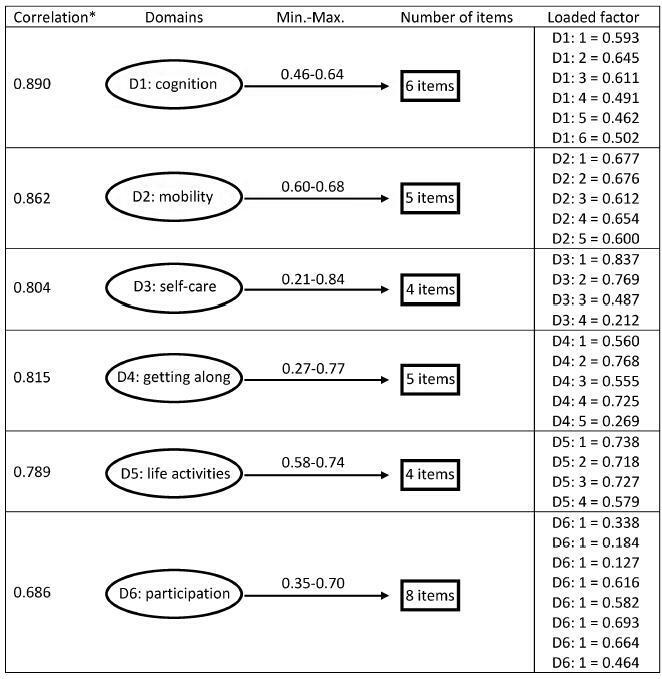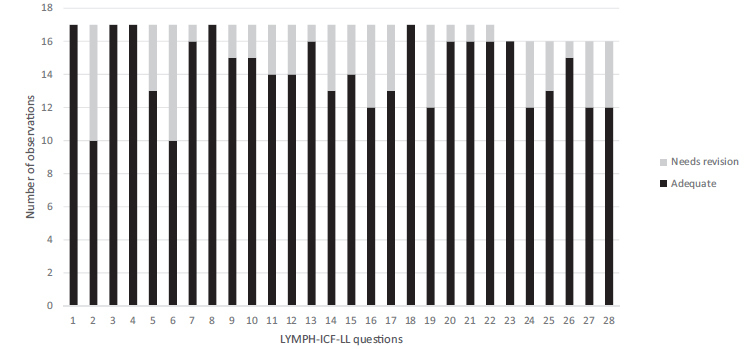Summary
Revista Brasileira de Ginecologia e Obstetrícia. 05-01-2018;40(5):260-265
The objective of this study was to identify the perspective of the specialists about functioning in women with cervical cancer (CC).
A study was conducted with specialists using the Delphi methodology. The specialist contacts were found in oncology organizations and associations, as well as in a referral hospital in the treatment of CC. The questions that the experts answered covered the biopsychosocial domains of the International Classification of Functioning, Disability and Health (ICF).
Twenty-five specialists participated in the study. The experts’ responses generated 485 significant concepts. The categories that presented the highest frequencies of reporting by the specialists were health services, systems and policies; structure of the reproductive system; health professionals and sexual function.
Regarding the perception of the specialists, this study concluded that 24 categories of ICF are the most relevant in the context of functioning in women with CC. The results suggest that the biopsychosocial perspective was incorporated in the experts’ perceptions about the functioning phenomenon in women with CC in Brazil.
Summary
Revista Brasileira de Ginecologia e Obstetrícia. 02-01-2017;39(2):44-53
To validate the translation and adaptation to Brazilian Portuguese of 36 items from the World Health Organizaton Disability Assessment Schedule 2.0 (WHODAS 2.0), regarding their content and structure (construct), in a female population after pregnancy.
This is a validation of an instrument for the evaluation of disability and functioning and an assessment of its psychometric properties, performed in a tertiary maternity and a referral center specialized in high-risk pregnancies in Brazil. A sample of 638 women in different postpartum periods who had either a normal or a complicated pregnancy was included. The structure was evaluated by exploratory factor analysis (EFA) and confirmatory factor analysis (CFA), while the content and relationships among the domains were assessed through Pearson's correlation coefficient. The sociodemographic characteristics were identified, and the mean scores with their standard deviations for the 36 questions of the WHODAS 2.0 were calculated. The internal consistency was evaluated byCronbach's α.
Cronbach's α was higher than 0.79 for both sets of questons of the questionnaire. The EFA and CFA for the main 32 questions exhibited a total variance of 54.7% (Kaiser-Meyer-Olkin [KMO] measure of sampling adequacy = 0.934; p < 0.001) and 53.47% (KMO = 0.934; p < 0.001) respectively. There was a significant correlation among the 6 domains (r = 0.571-0.876), and a moderate correlation among all domains (r = 0.476-0.694).
The version of the WHODAS 2.0 instrument adapted to Brazilian Portuguese showed good psychometric properties in this sample, and therefore could be applied to populations of women regarding their reproductive history.

Summary
Revista Brasileira de Ginecologia e Obstetrícia. 02-01-2016;38(2):88-96
The objective of the study is to describe the process of translation and cross-cultural adaptation of the Lymphoedema Functioning, Disability, and Health Questionnaire for Lower Limb Lymphoedema (Lymph-ICF-LL) into (Brazilian) Portuguese.
The process was comprised of five steps - translation, back translation, revision by an expert panel, pretest, and final translation. The first translation was performed by two professionals of the healthcare area, and the back translation was performed by two translators. An expert panel assessed the questions for semantics and idiomatic, cultural, and conceptual equivalence. The pretest was conducted on 10 patients with lymphedema.
Small differences were identified between the translated and back-translated versions, which were revised by the expert panel. The patients included in the pretest found 10 questions difficult to understand; these questions were reassessed by the same expert panel.
The results of the translation and cross-cultural adaptation of the Lymph- ICF-LL resulted in a Brazilian Portuguese version, which still requires validation with various samples of the local population.
